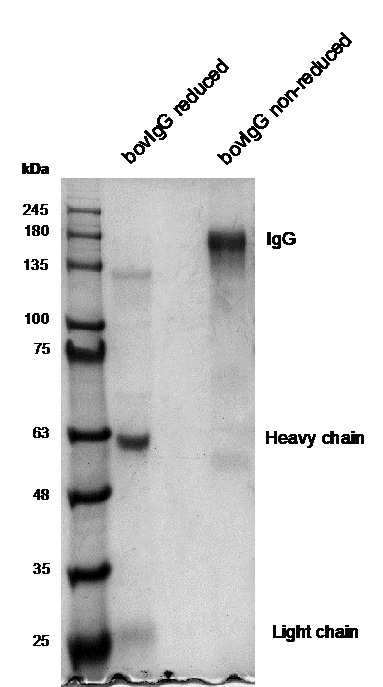
Cat. #161662
Anti-integrin b1
Cat. #: 161662
Sub-type: Primary antibody
Target: Integrin beta-1 (CD29), human
Class: Monoclonal
Application: ELISA, FACS, FFPE, Function Blocking, Immunofluorescence, Immunohistochemistry, Immunoprecipitation, Western Blot
Reactivity: Human
Host: Mouse
£300.00
This fee is applicable only for non-profit organisations. If you are a for-profit organisation or a researcher working on commercially-sponsored academic research, you will need to contact our licensing team for a commercial use license.
Contributor
Inventor: Elizabeth A. Wayner
Institute: Fred Hutchinson Cancer Research Center
Primary Citation: Carter et al. 1990. J Cell Biol. 110(4):1387-404. PMID: 1691191
Tool Details
*FOR RESEARCH USE ONLY (for other uses, please contact the licensing team)
- Name: Anti-integrin b1
- Research fields: Cell biology
- Clone: P4C10
- Tool sub type: Primary antibody
- Class: Monoclonal
- Molecular weight: Multiple isoforms; Predicted: 87 to 92 kDa; Apparent: 120 kDa
- Reactivity: Human
- Host: Mouse
- Application: ELISA, FACS, FFPE, Function Blocking, Immunofluorescence, Immunohistochemistry, Immunoprecipitation, Western Blot
- Description: MoAb P4C10 was developed to identify a new fibronectin receptor that is identical to the integrin receptor ?1. P4C10 inhibits endodermal cell and keratinocyte attachment to collagen type I, fibronectin and laminin; also inhibits cell-cell adhesion. The epitope recognized by P4C10 is not trypsin sensitive.
- Immunogen: HT1080 human fibrosarcoma cell line
- Isotype: IgG1
Target Details
- Target: Integrin beta-1 (CD29), human
- Molecular weight: Multiple isoforms; Predicted: 87 to 92 kDa; Apparent: 120 kDa
- Target background: integrin ?1 (CD29), human, anti-?1 mAb
Applications
- Application: ELISA, FACS, FFPE, Function Blocking, Immunofluorescence, Immunohistochemistry, Immunoprecipitation, Western Blot
- Application notes: . A good starting concentration for immunohistochemistry (IHC), immunofluorescence (IF), and immunocytochemistry (ICC) when using mouse Ig is 2-5 ug/ml. For western blots, the recommended concentration range of mouse Ig 0.2-0.5 ug/ml. In general, rabbit antibodies demonstrate greater affinity and are used at a magnitude lower Ig concentration for initial testing. The recommended concentrations for rabbit Ig are 0.2-0.5 ug/ml (IF, IHC and ICC) and 20-50 ng/ml (WB).
Handling
- Storage conditions: For immediate use, short term storage at 4°C up to two weeks is recommended. For long term storage, divide the solution into volumes of no less than 20 ul for freezing at -20°C or -80°C. The small volume aliquot should provide sufficient reagent for short term use. Freeze-thaw cycles should be avoided. For concentrate or bioreactor products, an equal volume of glycerol, a cryoprotectant, may be added prior to freezing.
References
- Carter et al. 1990. J Cell Biol.111(6):3141-54.PMID: 2269668
- Takadaet al. 1993. J Biol Chem. 268(23):17597-601.PMID: 7688727
- Wayner et al.1993. Cell Biol.121(5):1141-52.PMID: 8501119
- Symington et al. 1993.J Cell Biol.120(2):523-35.PMID: 8421064


